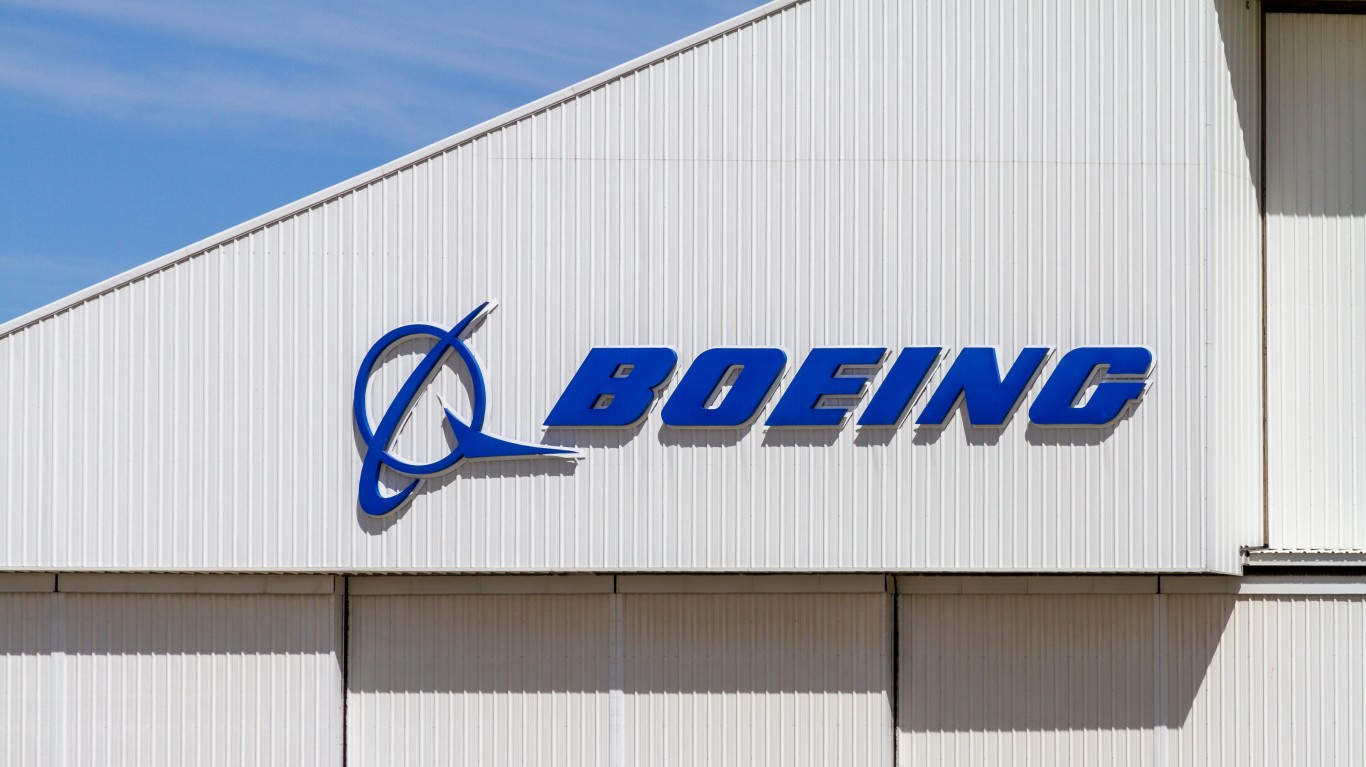Military
Why Holding Boeing Stock Will Require Plenty of Patience

Published:

Boeing (NYSE: BA) shares sit dead last among the 30 stocks composing the Dow Jones Industrial Average based on year-to-date performance. At the same time, Boeing stock also ranks among the worst 20 companies in the S&P 500. Investors have to be scratching their heads wondering: Is there any way this aerospace company can recover?
The bottom of the S&P 500 barrel is littered with airline stocks, cruise stocks, retailers and oil stocks as a result of the coronavirus pandemic. Boeing may have a way to get out of this bracket but like all good things, it will take some time.
Boeing recently opted for a $25 billion debt offering in lieu of a government bailout. Ultimately, the bond sale significantly increases the chances that Boeing will ride out the COVID-19 pandemic. The new debt comes at a cost but the good may outweigh the bad here.
To avoid having to give the federal government warrants for company stock, Boeing chief executive Dave Calhoun said in late March that the company would not accept federal help. It’s not entirely clear, however, that Boeing would have gotten enough federal help in any event. The entire amount available to the airlines and the aerospace industry was less than the $25 billion Boeing borrowed.
Shoring up its balance sheet has become even more important to Boeing and its investors than the company’s cash flow. For years, Boeing touted its cash flow as the wellspring of the company’s prosperity.
Since the grounding of the company’s 737 Max following two fatal crashes that killed 346 people, Boeing’s new deliveries have cratered and with them the company’s cash flow. In 2018, Boeing delivered 806 new commercial jets. Last year the company delivered 380.
To make matters worse, the company’s customers are flailing.
Passenger traffic has essentially disappeared worldwide for commercial airlines.
With the return of air travel demand, Boeing could once again reign as the king of the aerospace industry. But what the industry will look like is an open question. In an interview on the “Today” show last week, Calhoun said the condition of the airline industry was cause for concern.
“The threat to the airline industry is grave,” Calhoun said. “There’s no question about it. And apocalyptic does actually accurately describe the moment.”
He went so far as to predict that a major U.S. airline company would go out of business because of the pandemic.
“Something will happen when September comes around,” he said. “Traffic levels will not be back to 100%. They won’t even be back to 25%. So there will definitely be adjustments that have to be made on the part of the airlines.”
But he is more optimistic than billionaire Warren Buffett, who dumped all of Berkshire Hathaway’s airline stocks, saying “the world has changed for airlines.”
“I don’t happen to share the view,” Calhoun said of Buffett’s position. “I share the near-term turmoil. Near-term for me doesn’t mean a few months. I believe it’s three full years before we return to the traffic levels that we had just in 2019, and then probably another two before we begin to return to the growth rates that we used to have.
“And I’m hopeful that somewhere between here and there, there’s a vaccine, and that the moment of high anxiety begins to really subside. But I still believe in the future of the industry.”
The Boeing CEO said he was confident that the 737 Max would be an important part of the company’s future.
“We made a bad assumption, with respect to the design envelope for that airplane, at that moment in time, under that condition,” Calhoun said. “Our assumption about how a pilot would react in a very tense, difficult moment was wrong. Simple as that.
“But I do believe that has been fixed. I also believe in the culture at Boeing. I believe — actually, all of our employees believe — deeply in safety. And we have taken a magnifying glass to everything we do, everything, so that we don’t ever allow for something like that to happen in the future.”
Calhoun added that he has full confidence in the 737 Max. “The certification work, the FAA’s work, has been as thorough as anything I’ve ever seen,” he said. “We’ve worked every scenario we can possibly work into the testing programs. And it does exceedingly well.”
While Boeing waits for commercial airplanes to start moving again, its defense business is holding its own. When the company released its first-quarter earnings report in April, it said the defense business was likely to exceed the commercial business for the first time in years.
Wall Street is not convinced. On Friday Boeing shares dropped about 2% to $120.00. Its 52-week range is $89.00 to $391.00.
Start by taking a quick retirement quiz from SmartAsset that will match you with up to 3 financial advisors that serve your area and beyond in 5 minutes, or less.
Each advisor has been vetted by SmartAsset and is held to a fiduciary standard to act in your best interests.
Here’s how it works:
1. Answer SmartAsset advisor match quiz
2. Review your pre-screened matches at your leisure. Check out the advisors’ profiles.
3. Speak with advisors at no cost to you. Have an introductory call on the phone or introduction in person and choose whom to work with in the future
Thank you for reading! Have some feedback for us?
Contact the 24/7 Wall St. editorial team.